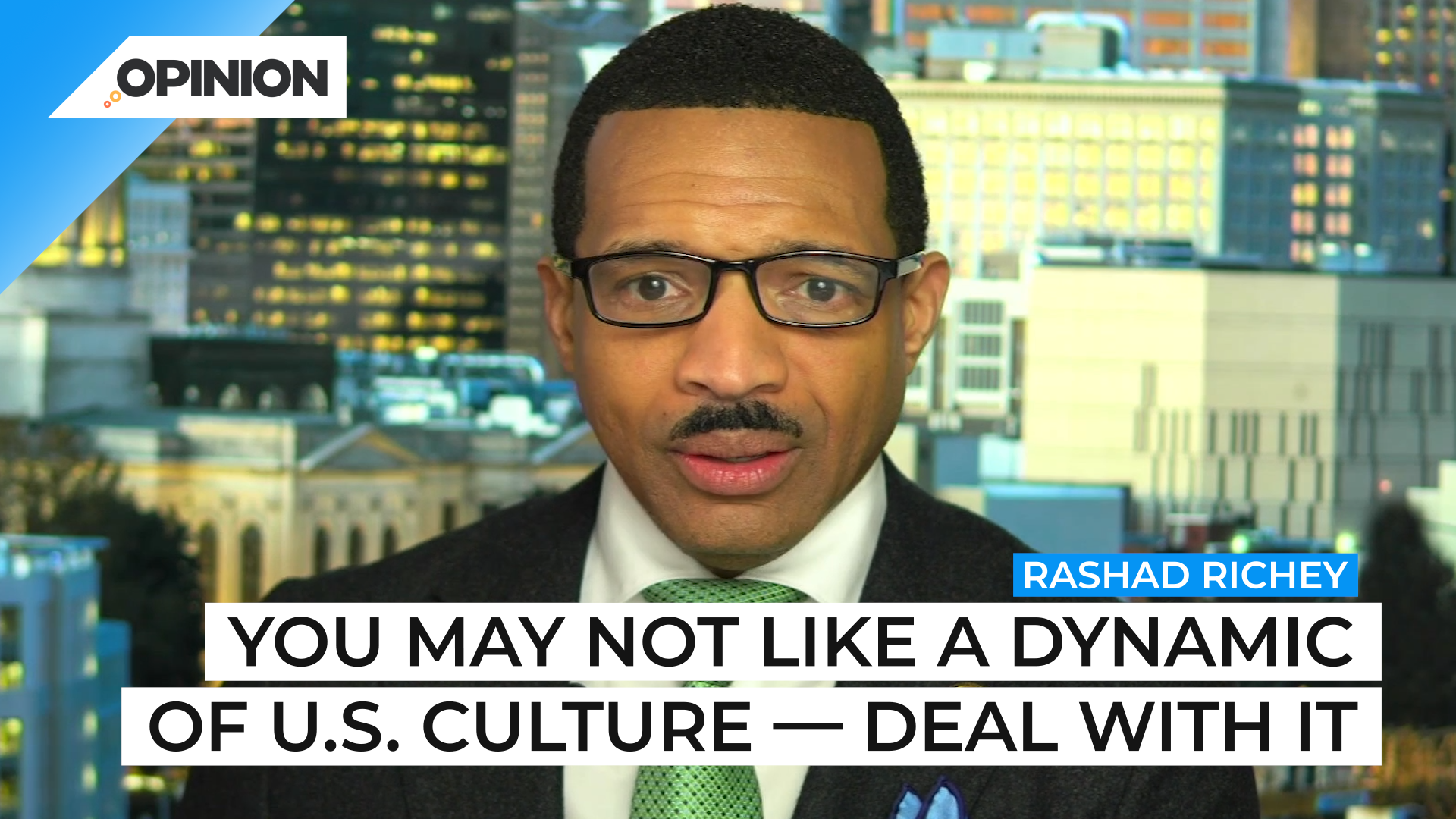
Commentary
-
Our commentary partners will help you reach your own conclusions on complex topics.
All right, let’s talk about it — out-of-control legislation, we got more.
Tennessee House Bill 0878, presented by Representative Monty Fritts, would allow a government worker to discriminate against members of the LGBTQ community, against interracial marriages … yes, the wording of the bill would allow for a county clerk to not solemnize a marriage based on personal belief alone.
This has gone too far. The wording of this bill provides the framework for legal government discrimination. You see, there was a time in our country’s history when discrimination was part of the culture of America. Now it is becoming part of the actual statutory record.
The bill being proposed allows for a clerk to insert personal belief over the element of non-discrimination. Let me tell you why this is imperative to pay attention to and to oppose. You see, the individuals that the clerk may disagree with — for example, an interracial couple — the clerk may hold a personal belief that interracial marriage is a no-no to them. And by allowing that personal belief to extend to the level of discrimination or discriminatory action, keep in mind that creates an issue for taxpayers. Because everyone — straight, gay, lesbian, black, white, brown — everyone pays taxes.
You pay taxes in order to receive government services without discrimination. You may not like a particular dynamic of American culture. Deal with it. It’s part of a free democracy. See, these things are permissible.
When you pay taxes, you should be able to receive benefits from the money they take from you, everybody. Your personal beliefs can be exercised in ways that are appropriate, but this would be an inappropriate way to exercise that belief. Why would anyone want to utilize their faith in the context of a taxpayer job or tax-paid job, in order to say no to somebody?
You know, I’m waiting for the day when one of these faith-based bills would actually create coalition rather than discrimination; would allow for unity, rather than disunity. Isn’t it ironic that every time a Republican presents one of these personal belief bills or one of these faith-based bills, they do one thing; they allow you to legally discriminate against somebody else. Should it not be the other way around? Should not these bills, if they are faith based, provide opportunity and connection rather than disconnection?
Let me know your thoughts.
-
Don’t fall for GOP’s cheap racist attacks on Kamala Harris
Republican rhetorical attacks on Vice President Kamala Harris, the leading Democratic candidate for president, escalated as soon as President Biden announced that he was stepping back from the election. Many Republicans accused Harris of being “a DEI hire” and indicated that she only got her position because of her skin color or gender, not her…
-
Violent rhetoric in politics amplified by Republican leaders
In the wake of the attempted assassination of former President Donald Trump, some Republicans were quick to blame Democrats for the attack, linking it to “incendiary rhetoric” about Trump. One recent example cited by his supporters is President Joe Biden’s comment: “It’s time to put Trump in the bullseye. He’s gotten away with doing nothing…
-
America is in trouble
President Biden’s debate performance drew a variety of reactions from Democrats, with some calling for him to step down, others saying that he should support another candidate, and some still insisting that Biden remains the best choice. Meanwhile, the U.S. Supreme Court expanded presidential powers and criminal immunity in its Trump v. United States decision…
-
Americans deserve younger candidates, better ideas
On March 7, President Joe Biden delivered a well-received State of the Union address, speaking clearly and in detail about the challenges that the nation must confront. Less than four months later, on June 28, a very different-looking president took the stage to debate Donald Trump. In both speech and physical appearance, this Biden suddenly…
-
Time for Christian evangelicals to part ways with Trump
As former President Trump vies for another shot at the White House, one loyal demographic he is counting on is white Christian evangelicals. More than 80% of evangelicals backed Trump in the 2020 election, and after endorsing a Louisiana law requiring the Ten Commandments to be displayed in public school classrooms, he’s gearing up for…
Latest Opinions
-
 U.S. Department of Defense
U.S. Department of Defense
Congress still trying to figure out how to reduce wasteful military spending
-
 DVIDS
DVIDS
US Navy, Air Force making waves with new weapons at RIMPAC
-
 Getty Images
Getty Images
Israeli PM Netanyahu meets with Trump at Mar-a-Lago
-
 Getty Images
Getty Images
Growing US nuclear power resurgence reaches the nation’s heartland
-
 Getty Images
Getty Images
Beer from the sun, other solar thermal projects get government funding
Popular Opinions
-
In addition to the facts, we believe it’s vital to hear perspectives from all sides of the political spectrum.


